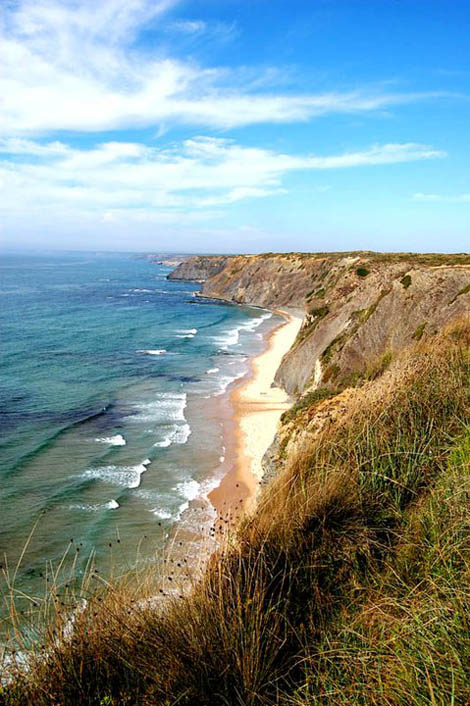 European Commission members Maria Damanaki and Günther Oettinger today presented a new action plan to promote the development of the renewable ocean energy sector in Europe.
European Commission members Maria Damanaki and Günther Oettinger today presented a new action plan to promote the development of the renewable ocean energy sector in Europe.
A central element of the action plan will be the creation of an ocean energy forum, which will bring together stakeholders to build capacity and promote cooperation.
The action plan should contribute to boosting this emerging sector of 'blue energy' towards full industrialization.
Ocean energy encompasses all technologies for harvesting renewable energy from our seas and oceans, with the exception of marine wind energy.
Its exploitation should contribute to decarbonising the EU economy and providing Europe with safe and reliable renewable energy.
Maria Damanaki, Member of the Commission responsible for maritime affairs and fisheries, said: “As underlined in our 'Blue Growth' strategy, the seas and oceans have the potential to generate enormous economic growth and create much-needed jobs. By contributing to the full development of the ocean energy sector, we can fuel this potential through innovation and at the same time provide Europe with clean, renewable energy.”
Energy Commissioner Günther Oettinger added: “Ocean energy has significant potential in terms of improving security of supply. This Communication aims to contribute to promoting technological innovation and achieving the goals of the Europe 2020 strategy and beyond. The constitution of a wide range of renewable energy sources, including ocean energy, also facilitates their integration into the European energy system.”
The world's available ocean energy resources exceed our current energy needs and projections for the future. These resources can be obtained in different ways, for example, through wave energy and tidal currents.
Exploiting ocean energy would allow the EU to progress towards a low-carbon economy and, by reducing the EU's dependence on fossil fuels, enhance energy security.
In addition, ocean energy may contribute to supplement production from other renewable energy sources, such as wind and solar energy, in order to ensure the global and constant supply of renewable energy to the network.
On the other hand, ocean energy has the potential to create new high-quality jobs, particularly in coastal areas of Europe that often experience high unemployment rates.
Despite its undeniable potential, this promising new sector faces several challenges that must be overcome in order to reap significant environmental and economic benefits and allow this emerging sector to become cost-competitive compared to other forms of electricity production. , namely:
· technology costs are high and access to finance is difficult;
· there are important infrastructure obstacles, such as problems with connection to the network or with access to port facilities and specialized ships;
· there are administrative barriers, for example complex licensing and authorization procedures, which can delay projects and increase costs;
· environmental problems arise, which in particular require further research and more complete information on the environmental impact.
The Commission already supports several initiatives in the field of ocean energy. The Ocean Energy Action Plan will create a forum to share knowledge and expertise, create synergies, provide creative solutions and foster the future development of this sector.
It is an instrument to support stakeholders in drawing up a Strategic Guide for the ocean energy sector, which could subsequently form the basis for a European industrial initiative.


















Comments